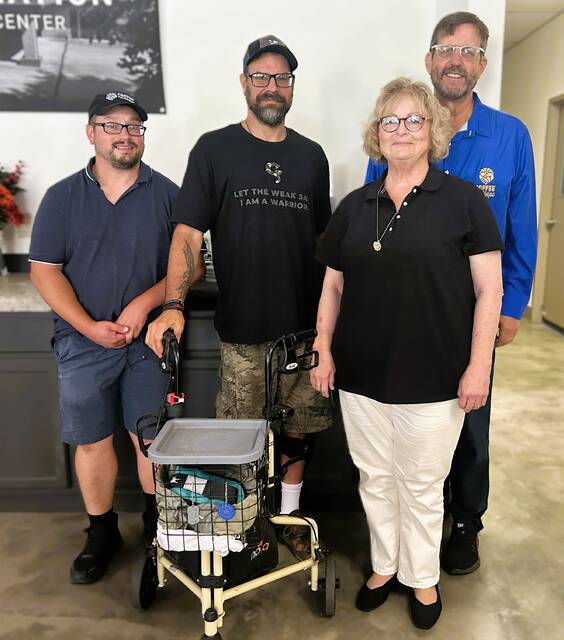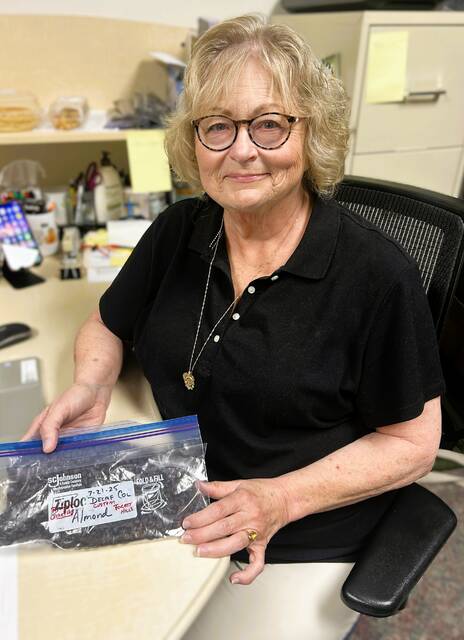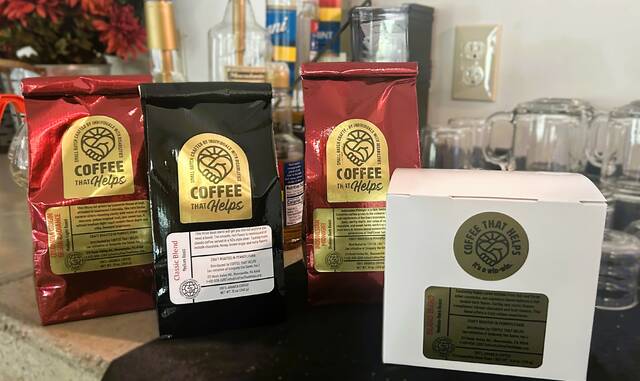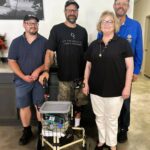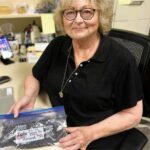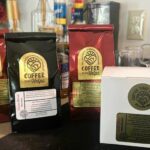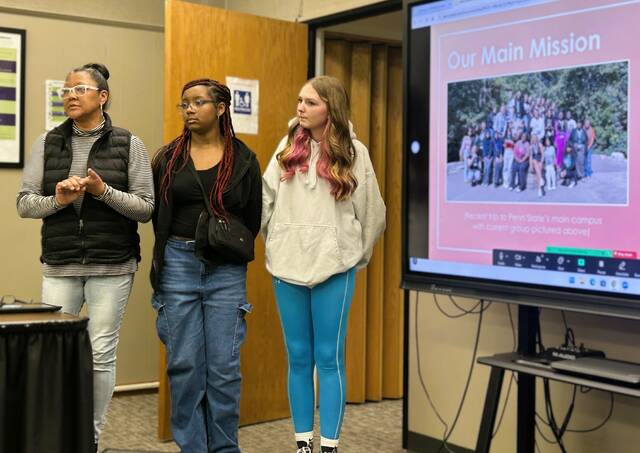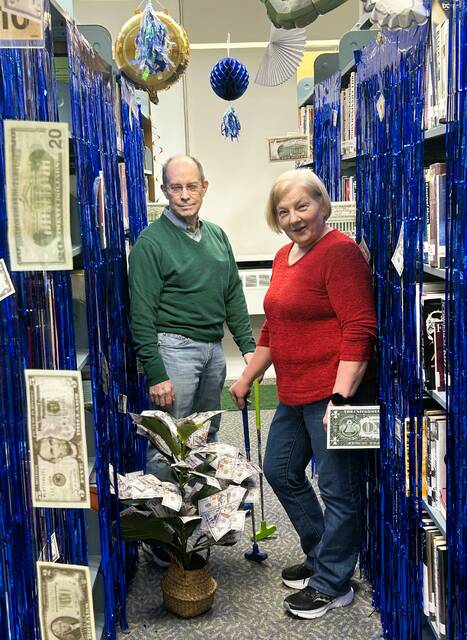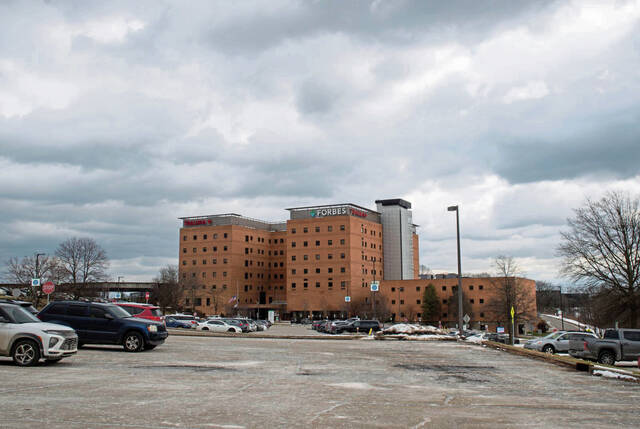After a fall caused an angioma in his spine to rupture, Jake Hoff of Monroeville became paralyzed from the waist down. He eventually regained use of one leg and began volunteering at the local Reclamation Community Center.
That’s where Hoff met Calvin Clark and started working at Coffee That Helps, a nonprofit that hand roasts and sells small-batch coffee. Clark is founder and board president of Uniquely The Same, the umbrella organization forthe coffee comany.
There is no brick and mortar store; goods are sold online and at events such as farmers markets. Hoff started about a year and a half ago and works five hours every Tuesday and at sales events.
“I used to be sad and angry,” he said. “Now I enjoy coming to work and having a sense of purpose.”
Hoff continues to volunteer. He is a part of the men’s ministry Soulcon and participates in No Excuses workouts.
Since September 2024, Andrew Graziani, 35, has traveled every other Tuesday from Greensburg to the office inside Reclamation Community Center.
Graziani makes coffee, cleans the office and cleans the stainless steel equipment.
“I do whatever needs done,” he said.
While Graziani has volunteered at the Westmoreland County Food Bank since 2010, he’s struggled to find employment.
“I haven’t worked my whole adult life, but I like it here,” Graziani said. “This is my first paying job since high school.”
All Coffee That Helps employees are disabled in some way.
“There is no job description,” Clark said. “We start with the individual and see what they’re good at.”
Clark didn’t start out in the coffee business. Long ago, he worked at the tech company Oracle Corporation and then later attended seminary school. After befriending a man who suffered from the genetic neurodegenerative disease Friedreich’s ataxia, Clark found himself asking what he could do that would be important.
“I dreamed of a world where things were better for people with disabilities,” Clark said. “Most of what I’ve done since then has been because of that time.”
A federal law allows people with disabilities to continue their public education until the year they turn 21, and the Individuals with Disabilities Education Act assures free and suitable public education to eligible children.
But once people with disabilities “age out,” their opportunities for education, employment, housing and travel decrease dramatically.
“Our goal is to have resources. There are very few OVR services for adults,” Clark said, referring to Pennsylvania’s Office of Vocational Rehabilitation. The purpose of OVR is to assist those with disabilities in training for, obtaining or retaining employment.
When Clark began Uniquely the Same 11 years ago, he asked his longtime associate, Ida Blevins, to come aboard. Blevins worked in hospital management but found satisfaction in volunteering, such as participating in short-term missionary work.
After 37 years in management, Blevins was let go from her job. “But the sun came up and the world kept spinning,” she said.
Blevins initially signed on for a few months to help attain nonprofit status. “And then I just stayed,” she said. “It just felt right.”
It felt so right that Blevins, who resides in Springfield, Ill., travels to Monroeville for five to six weeks at a time to work.
“Why not do something that feeds the soul?” Blevins said. “It fills my bucket so I can help fill other people’s buckets.”
“Sixty percent of the world drinks coffee every day,” Clark said. “It’s not cultural, but it is ritualistic.”
Coffee That Helps has 11 part-time employees, and there is a waiting list for employment. It has five volunteers who are not disabled and do not take a paycheck. All proceeds go to pay employees and keep the operation running.
Even though every employee has some type of disability, they don’t want to be known for that; they want to make great coffee and just so happen to help individuals in the process.
“We don’t want to be a cause,” Clark said. “Everything we do is high-end. We want to be the best coffee, period.”
For example, the organization purchases the renowned Jamaican Blue Mountain Coffee in micro lots of five to 20 pounds. The coffee is grown in an area of about 50 square miles in the Blue Mountains of Jamaica.
While ground coffee has a shelf life of three to five months and instant coffee can last more than two years, Coffee That Helps is roasted to order. They do not sell anything that is more than two weeks old.
Coffee That Helps delivers locally and ships anywhere in the United States. If a customer purchases three or more items, the shipping or delivery fee is waived. Coffee That Helps also works with sports teams and other groups on fundraisers. For more information, call 412-838-2282 or visit coffeethathelps.org.


